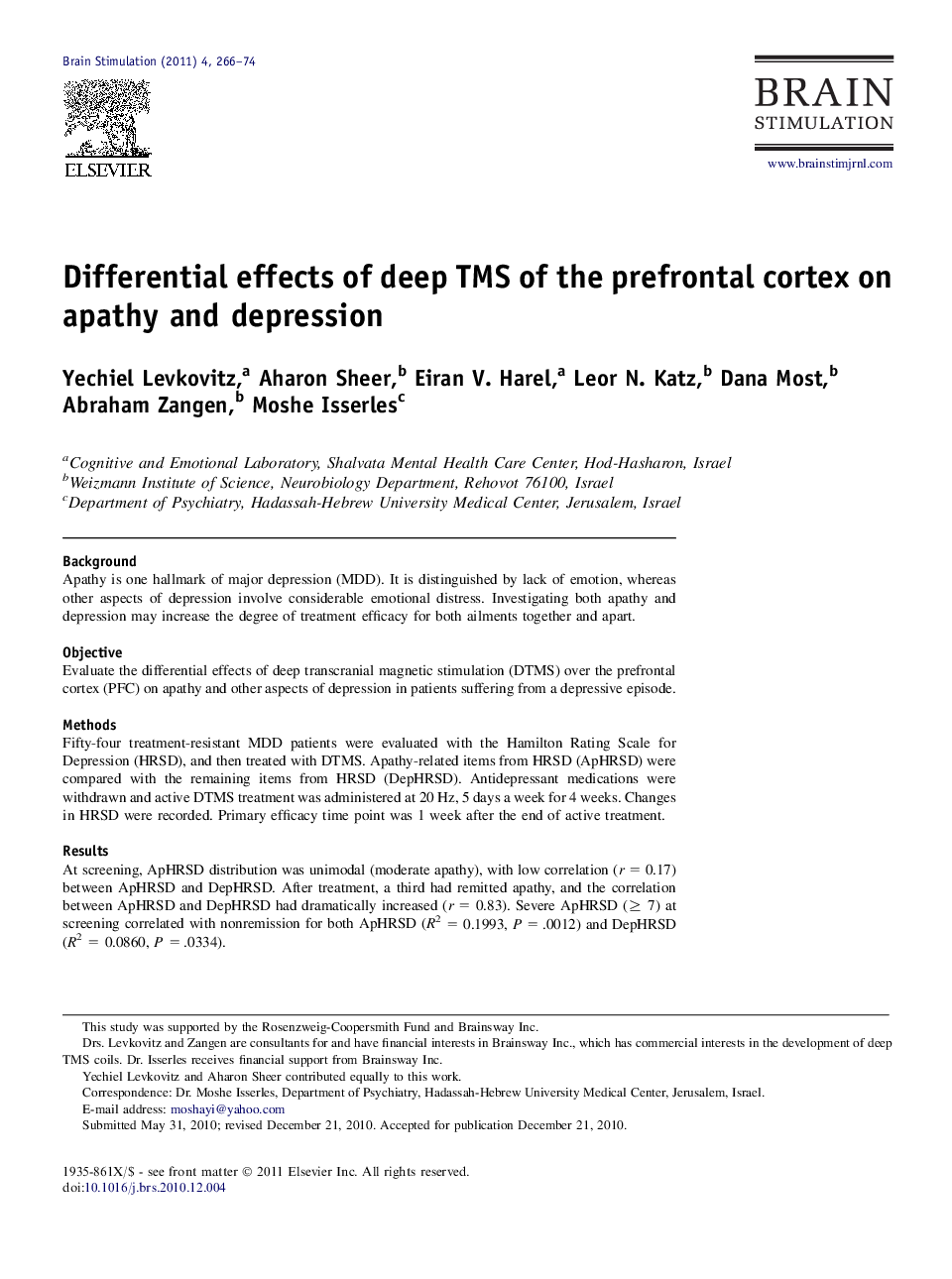| Article ID | Journal | Published Year | Pages | File Type |
|---|---|---|---|---|
| 3038854 | Brain Stimulation | 2011 | 9 Pages |
BackgroundApathy is one hallmark of major depression (MDD). It is distinguished by lack of emotion, whereas other aspects of depression involve considerable emotional distress. Investigating both apathy and depression may increase the degree of treatment efficacy for both ailments together and apart.ObjectiveEvaluate the differential effects of deep transcranial magnetic stimulation (DTMS) over the prefrontal cortex (PFC) on apathy and other aspects of depression in patients suffering from a depressive episode.MethodsFifty-four treatment-resistant MDD patients were evaluated with the Hamilton Rating Scale for Depression (HRSD), and then treated with DTMS. Apathy-related items from HRSD (ApHRSD) were compared with the remaining items from HRSD (DepHRSD). Antidepressant medications were withdrawn and active DTMS treatment was administered at 20 Hz, 5 days a week for 4 weeks. Changes in HRSD were recorded. Primary efficacy time point was 1 week after the end of active treatment.ResultsAt screening, ApHRSD distribution was unimodal (moderate apathy), with low correlation (r = 0.17) between ApHRSD and DepHRSD. After treatment, a third had remitted apathy, and the correlation between ApHRSD and DepHRSD had dramatically increased (r = 0.83). Severe ApHRSD (≥ 7) at screening correlated with nonremission for both ApHRSD (R2 = 0.1993, P = .0012) and DepHRSD (R2 = 0.0860, P = .0334).ConclusionsDTMS over the PFC improved both apathy and depression similarly. However, DTMS did not lead to MDD remission if ApHRSD at screening was ≥ 7 of 12. Further investigation using a larger sample will determine whether screening apathy at baseline could be used to predict efficacy of DTMS in MDD patients.
